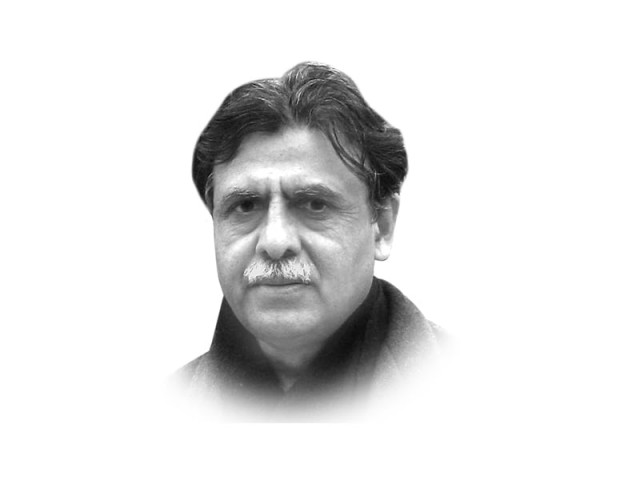Widodo’s moment
Indonesia's present leadership has sprung from middle-class without any dynastic hang-ups, links to military junta

The writer is an author, a public policy analyst and a former federal secretary. He teaches at the Lahore University of Management Sciences
The Asean region has been fortunate in many ways. Leadership in the region has tacitly resolved to keep the heat of their differences at low temperatures. Lee Kuan Yew followed this policy as did Mahathir Mohamad, who was able to lay the foundation of a vibrant and tolerant Malaysia. Indonesia, the largest archipelago in the region spread over thousands of islands, is now emerging as the leading light of this policy. It is a country known for its sharp contrasts as well as its diverse mix of races and faiths. With a population of 240 million, the majority of whom are Muslims, the country does not claim to be an Islamic state nor is Islam the state religion. Islamic ethos and practices, however, are deeply ingrained and eminently placed in public and private domains in a society which is otherwise pluralistic.
Indonesia, as of now, can rightly boast of having an enviable leadership model symbolised by President Joko Widodo, a small-time businessman from the middle class, who made his reputation as a city mayor in central Java. He was the governor of Jakarta before joining the race for the country's presidency last year. His performance in that position set the stage for him to attain the highest office in the country. In a keenly contested presidential election, he edged out his influential rival, Prabowo Subianto, a former vice president, three-star general and close relative of the iron-fisted late president Suharto. Known for his Spartan living, President Widodo prefers travelling on commercial flights in the economy class. He is present on the ground wherever a problem arises, whether it is havoc caused by mudslides or a wild fire in the woods.
Widodo's main challenge after assuming the presidency last year was to fix the economy, which had been reeling from a series of crises for the past many years. He took a bold decision in slashing fuel subsidies and made room for fairly substantial amounts for relatively starved, yet very important sectors. Indonesia had been spending around $30 billion on fuel subsidies annually, which had been regressive in nature as these benefitted those who did not deserve the dole. In a single move, he slashed the subsidy by $11 billion and announced their complete rollback in the coming three years. This had been a fairly difficult decision as no previous government could dare take such a bold action. President Widodo realised that there was no way out but to make hard decisions before it was too late and took a calculated risk. Money released through the slashing of subsidies has given him space to accelerate pro-poor economic programmes. He has big plans to improve the country's infrastructure with an eye on cutting the cost of doing business and building an effective work force.
The foreign policy domain is another area presenting growing challenges. As a member of the Asean, Indonesia is treading with circumspection on the issue of the South China Sea and advocates an amicable settlement between the parties involved. The issue of asylum-seekers who attempt to travel to Australia using Indonesian shores as a launch pad has been an irritant between the two countries. Australian naval vessels, in pursuing asylum-seekers, continue to violate Indonesian territorial waters. The two countries are now trying to hammer out a framework to effectively stall human smuggling.
On the domestic front, creeping radicalisation and acts of militancy have been key concerns for Widodo. He looks fairly determined to cleanse Indonesia of such aberrations. The state has moved decisively in breaking different militant networks. In the words of Widodo, Islam and democracy are not incompatible and terrorism has no place in religion. This cardinal belief is helping the state machinery to formulate its responses to the threat posed by the dangers of radicalism.
Indonesia's present leadership has sprung from the middle-class without any dynastic hang-ups, and without links to the military junta or the civilian aristocracy. We find something similar happening in South Asia, where India and Sri Lanka are finally making breaks from their dynastic pasts. Pakistan and Bangladesh still seem stuck with the ‘all-in-the family’ syndrome. In our case, barring a few exceptions, most political parties are in a ‘siblings’ bind'. We see a personalised style of ruling that involves taking over institutional processes, which contravenes the true spirit of democracy. The PPP, which fired the imagination of the people of my generation when they were in their twenties, was known for its ideologues in years past. Today it has little to offer in terms of a roadmap for the next 10 to 15 years. Its discourse starts with the elder Bhuttos, and rightly so, and ends with the Bilawals and Bakhtawars, sadly so. Faced with a myriad of problems, it is time for it and other parties to now depart from person-centric narratives.
Published in The Express Tribune, May 5th, 2015.
Like Opinion & Editorial on Facebook, follow @ETOpEd on Twitter to receive all updates on all our daily pieces.














COMMENTS
Comments are moderated and generally will be posted if they are on-topic and not abusive.
For more information, please see our Comments FAQ